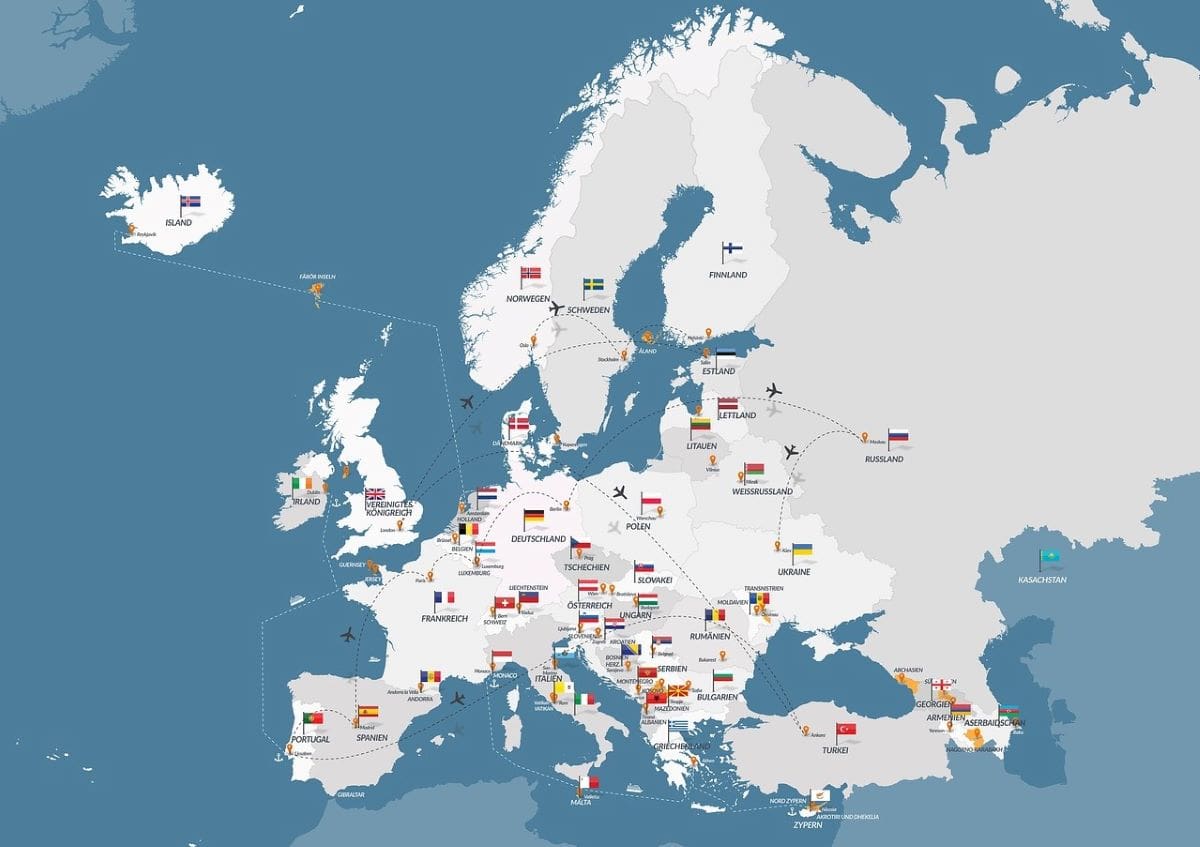Tthe European Commission presented the EU trade strategy for the coming years, based on openness and aimed at fostering economic recovery, strengthening multilateralism and reforming business trade rules.
The EU has decided to adopt a new commercial strategy to face new challenges: the economic and social consequences of the Covid-19 pandemic, climate change, international tensions, with the greater use of unilateralism by states. The new strategy aims to create a new consensus for a trade policy based on sustainability and assertiveness and which strengthens the EU’s position as a world leader in rules-based trade.
The new concept of open strategic autonomy, elaborated by the Commission plans to take advantage of the opportunities offered by the EU’s openness and global engagement, while defending interests internally and externally. The EU has an important network of trade agreements, totaling 46 agreements with 78 partners and benefits from a trade surplus. It is estimated that 35 million jobs in the EU depend on trade. Nonetheless, 85% of global growth over the next decade will take place outside of Europe.
In this framework, opening up will serve to strengthen resilience, help maintain the competitiveness of European businesses, make the single market more attractive, tackle climate change and other global challenges.
Fundamental Objectives
To this end, 3 fundamental objectives are identified:
- Support the recovery and transformation of the EU economy in line with its green and digital goals;
- Define global standards for a more sustainable and fairer globalization;
- Increase the EU’s ability to pursue its interests and assert its rights, including autonomously, if necessary.
Main Areas To Strengthen
To achieve these objectives, the Commission will focus on the following areas: Reform of the World Trade Organization; support for the green transition and promotion of responsible and sustainable value chains; promotion of digital transition and deal the trade in services; strengthening the regulatory impact of the EU; deepening EU partnerships with neighboring countries, enlargement countries and Africa; Strengthening the implementation of trade agreements to ensure a level playing field for EU businesses.

The Role of WTO
Within these sectors, with reference to strengthening the role of the WTO, the EU plans to: adopt a series of reforms focused on sustainable development and integrate sustainability into the work of the Organization; strengthen WTO rules against the negative spill-over effects caused by state intervention in the economies of its members; find a lasting solution to the current deadlock in the binding dispute resolution system; make the monitoring of its members’ commercial policies more effective, increasing the transparency of commercial practices and improving the way the committees work.
To support the recovery, the EU plans to: Make better use of existing trade agreements for businesses, especially SMEs; take a strategic approach to regulatory cooperation; create more green business opportunities; create the right conditions for concluding and ratifying agreements in Central and Latin America and Asia-Pacific; strengthen trade and investment links with neighborhood countries, enlargement countries and Africa by better integrating these regions into supply chains and promoting sustainable investment; explore options for an EU export credit strategy to support EU businesses.
Trade Relations
The EU is committed to leveraging its global power and strong trade relations to foster fairer and more sustainable trade by promoting: WTO sustainability actions; the commitment of the G20 countries to make their economies climate neutral; the use of EU trade and investment agreements as platforms for dialogue with partners on aspects of the European Green Deal, such as biodiversity, sustainable food policy, pollution and the circular economy; recognition of the Paris Agreement as the basis for all future trade agreements; the adoption of effective measures for the implementation of the trade and sustainable development chapters in trade agreements; Establishing EU rules on binding business due diligence to ensure that forced labor is excluded from EU business value chains. As long as the relevant binding legislation in this area is not in place, the Commission will provide guidance to help EU businesses take appropriate action.
The EU will develop tools to address new challenges and protect European businesses and citizens from unfair trading practices by promoting the role of the Trade Accordion Officer (CTEO) to maximize the benefits of negotiated results for businesses and to remove barriers for the implementation of the agreements and for sustainable development; New online tools will also be developed to support EU businesses and an anti-coercion tool.